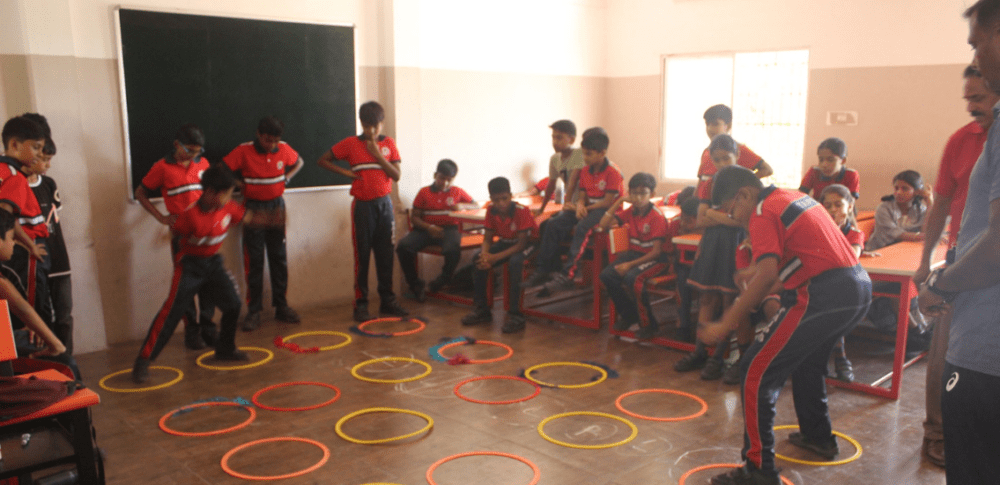Introduction
An interactive classroom environment is key to engaging students and fostering a love for learning. Gone are the days when students were passive recipients of information, as educators now strive to create dynamic and participatory learning spaces. In this blog post, we will explore 10 effective strategies to transform your classroom into an interactive hub in school, where students are actively involved in the learning process.
Incorporate Technology
Integrating technology in the classroom opens up a world of possibilities for interactive learning. Use interactive whiteboards, tablets, and educational apps to make lessons more engaging and interactive. From interactive quizzes to virtual field trips, technology can enhance student participation and understanding.
Gamify Learning
Gamification adds an element of excitement to the classroom. Transform lessons into games, incorporating leader boards, badges, and rewards. This approach not only motivates students but also encourages collaboration and healthy competition.

Embrace Group Work
Collaborative learning is an effective way to promote interaction among students. Assign group projects that require students to work together, discuss ideas, and solve problems collectively. This approach fosters teamwork and encourages students to learn from one another.
Incorporate Hands-On Activities
Encourage active learning through hands-on activities. Let students experiment, create, and explore during lessons. Whether it’s a science experiment, a role-playing activity, or a group project, hands-on activities deepen understanding and engage students on a different level.
Use Interactive Multimedia
Utilize multimedia resources to capture students’ attention and cater to different learning styles. Incorporate videos, online simulations, and interactive presentations to make lessons more interactive and visually appealing.
Encourage Discussion and Debate
Establish an environment in the classroom that empowers students to openly share their thoughts and opinions. Encourage open-ended discussions and debates on relevant topics. This not only promotes critical thinking but also enhances communication and social skills.
Provide Real-World Connections
Make lessons more engaging by connecting them to the real world. Show students how the concepts they learn in class relate to their everyday lives. Invite guest speakers, organize field trips, or use case studies to bring real-world examples into the classroom.
Personalize Learning
Acknowledge the individual learning needs and preferences of each student. Differentiate instruction by providing options and choices that cater to individual learning styles. Incorporate activities that allow students to take ownership of their learning and pursue topics of interest.
Assess Through Interactive Methods
Move beyond traditional assessments by adopting interactive evaluation methods. Use formative assessments such as quizzes, polls, or exit tickets to gauge student understanding during lessons. Incorporate project-based assessments that allow students to demonstrate their knowledge and skills in creative ways.
Foster a Positive Classroom Culture
Above all, create a supportive and inclusive classroom culture. Encourage respect, active listening, and empathy among students. Celebrate diversity and create a safe space for students to express themselves freely.
By implementing these 10 strategies, you can create an interactive classroom environment that promotes engagement, collaboration, and active learning. Embrace the power of technology, encourage group work, incorporate hands-on activities, and foster a positive classroom culture. With these approaches, your classroom will become an interactive hub of learning, where students thrive and their potential is unleashed.




